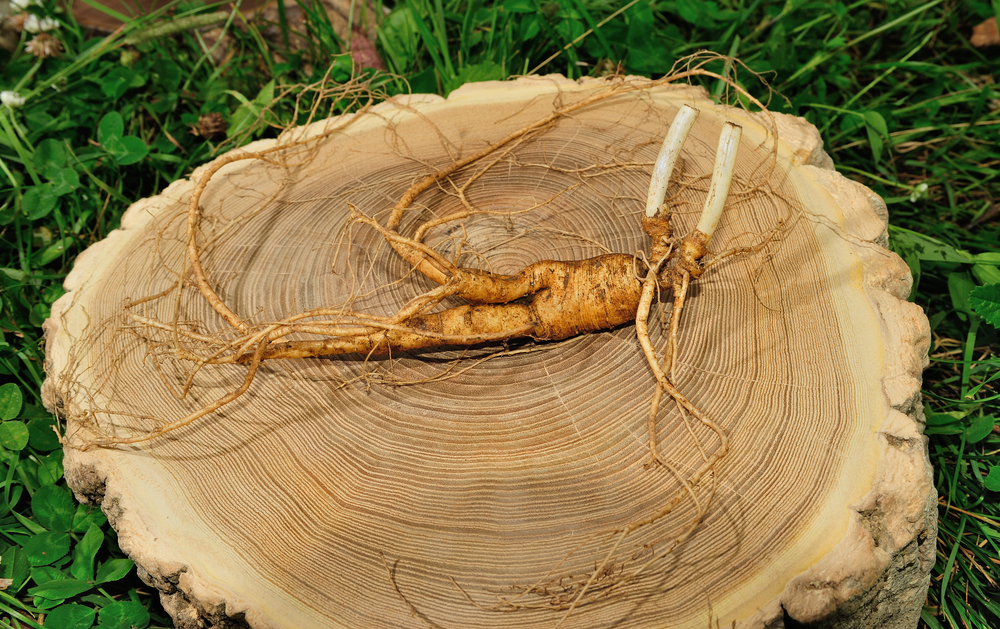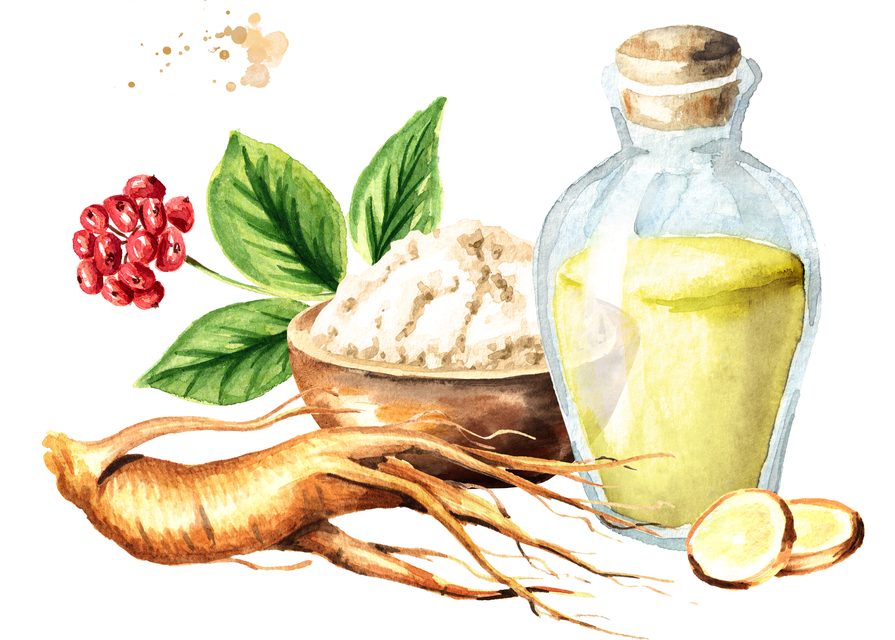What does ginseng look like?
Ginseng is one of the most famous medicinal plants in Traditional Chinese Medicine. It is native and mainly cultivated in several countries including China, South Korea, America, and Canada, people have few chances to see ginseng plants and roots in their daily lives.
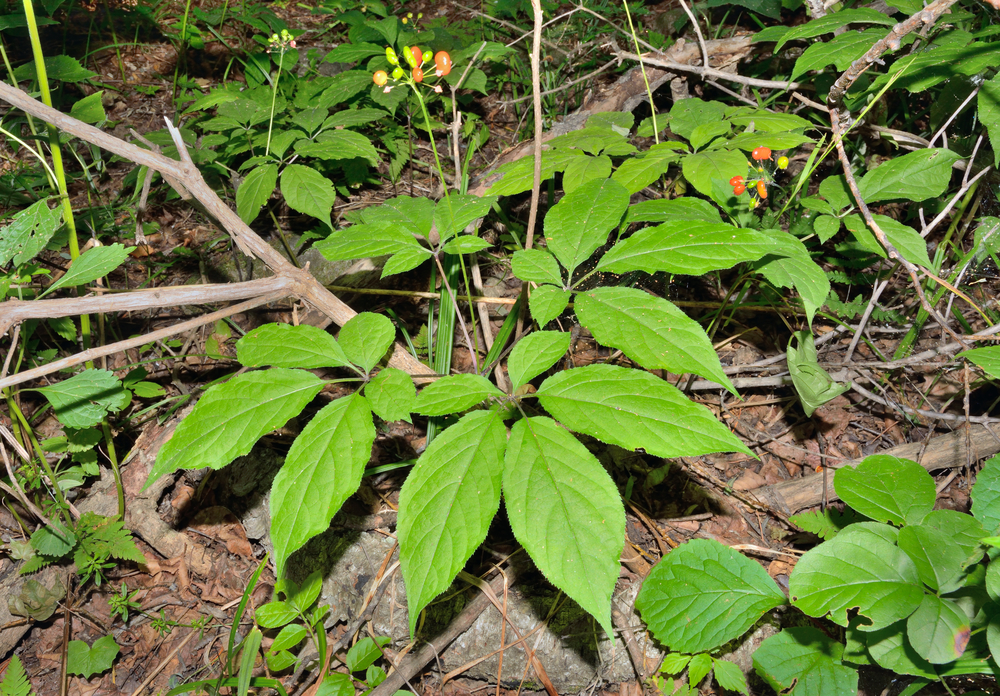
What does the ginseng plant look like?
Ginseng is an herbaceous perennial plant, so unlike trees, ginseng plants are small and short and hardly detectable in the wild forests.
Ginseng plants usually have 1-4 palmately compound leaves and each ginseng leaf consists of 3-5 leaflets.
Leaves are a way to determine the age of ginseng. Ginseng plants with 3 leaves are considered at least 5 years old, many states in the United States prohibit the harvest of ginseng plants with fewer than 2 leaves.
Ginseng berry is one of the most striking features that can help people identify ginseng plants. The ginseng fruits come out in June to September each year, and these ginseng berries turn green first into red.
Ginseng seeds come from ginseng berries. Each ginseng berry contains two semicircle seeds.
What does ginseng root look like?
Ginseng root is known as “man root”, called “Ren Shen” in Chinese because the shape of the ginseng root looks like the legs of a man.
Ginseng root is the main part that is used for consumption. We can roughly find the age of the ginseng root based on the stem scars on its rhizome. In the autumn, the ginseng leaves fall and add stem scar on the rhizome. Usually, a six-year-old ginseng root will have 5 stem scars on its rhizome.
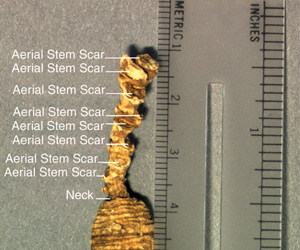
Credit: USDA-APHIS
What does wild ginseng root look like?
Wild ginseng is grown in the untrodden mountains and forests. It is difficult to find wild ginseng nowadays, and ginseng hunters take a lot of energy and time to find wild ginseng over 20 years.
Cultivated ginseng on the market is heavily fertilized so they are larger in size than wild ginseng. In contrast, wild ginseng is much smaller in size.
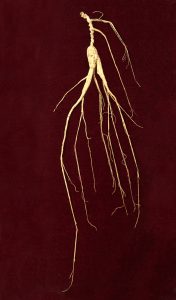 Cultivate ginseng is commonly six-year-old or less, while wild ginseng is about 15 years, the rhizome or neck of wild ginseng is long with stem scars.
Cultivate ginseng is commonly six-year-old or less, while wild ginseng is about 15 years, the rhizome or neck of wild ginseng is long with stem scars.
Cultivated ginseng has more lateral roots than wild ginseng, while wild ginseng that grows dozens of years will grow into the deep ground and it has many concentric growth rings and longer lateral roots.
Ginsenosides are pharmacologically active ingredients in ginseng that are responsible for a variety of health benefits of ginseng. Wild ginseng is found to have rich ginsenosides types and contain a higher amount of ginsenosides than cultivated ginseng.
